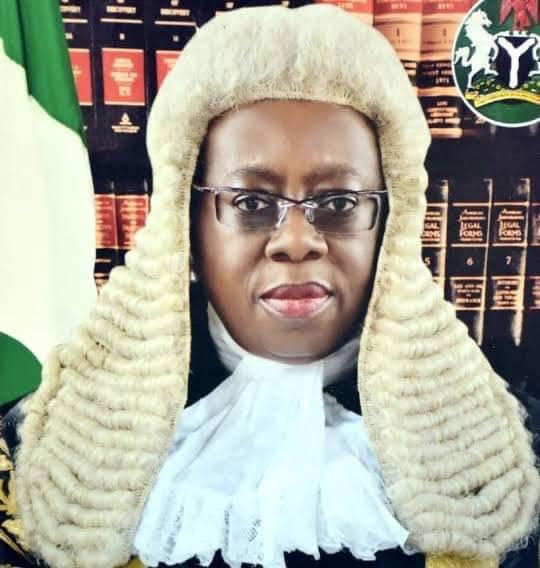Chief Justice of Nigeria (CJN), Justice Kudirat Kekere-Ekun, has expressed concerns over the reputation of the judiciary, noting that “some judges are giving the judiciary a bad name.”
Her remarks came during a public discourse on “Ethics, Morality, and the Law,” where she addressed the impact of controversial rulings, particularly those emerging from courts of coordinate jurisdiction in politically sensitive states like Kano and Rivers.
Despite these controversies, Kekere-Ekun highlighted that the Nigerian judiciary is fundamentally supported by judges of integrity.
“By and large, our judges are knowledgeable, upright, courageous, and hardworking,” she said, but added, “it is unfortunate that a few ones are giving us a bad name.”
Justice Kekere-Ekun stressed the importance of ethical accountability, urging judges to remember their responsibility to both themselves and to God.
She emphasized the need to consider the public’s perspective, noting that citizens closely observe how ethics, morality, and the law intersect within society.
“The role of the legal practitioner within this framework merits particular attention,” she said, describing lawyers as both “antagonist and protagonist in the pursuit of justice.”
She added, “This dual role requires balancing the scriptures and the law with ethical constitutions, often containing moral and legal questions that may seem at odds.”
Justice Kekere-Ekun noted that the public’s trust in the judiciary depends on this alignment, as a legal system that upholds ethical and moral principles strengthens society’s faith in justice.
“Our legal system should not only administer justice but also resonate with the community’s moral convictions,” she said.
In her concluding remarks, she assured that the judiciary would heed all points raised during the discourse and continue its pursuit of justice that aligns with ethical standards.
Vanguard









